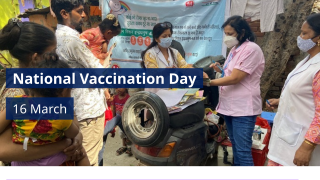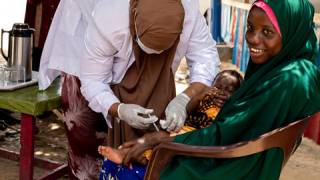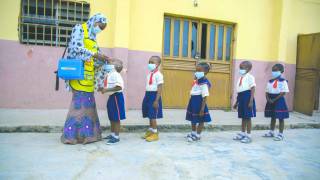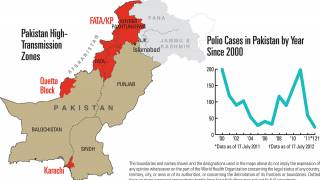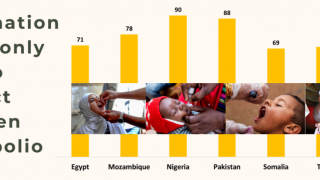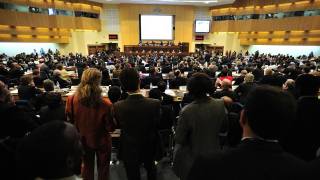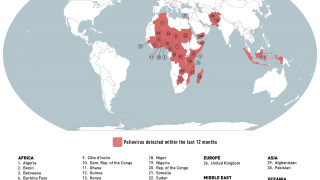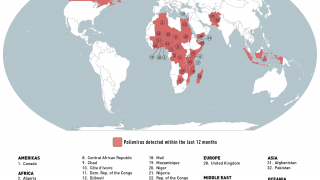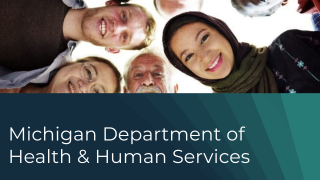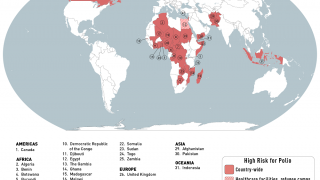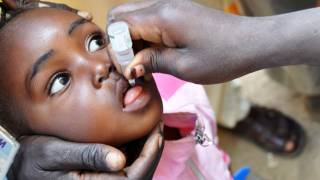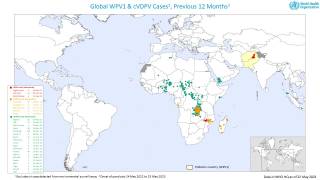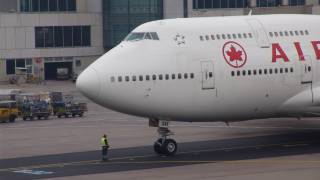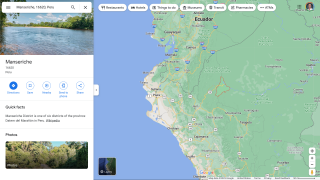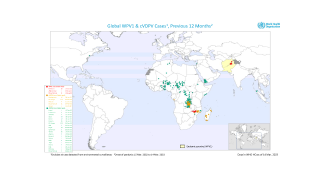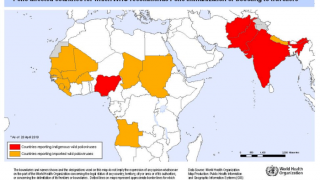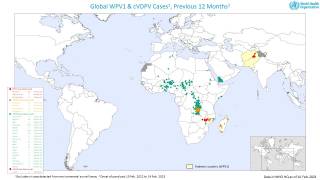Polio Emergency Alert Extended For 3-Months
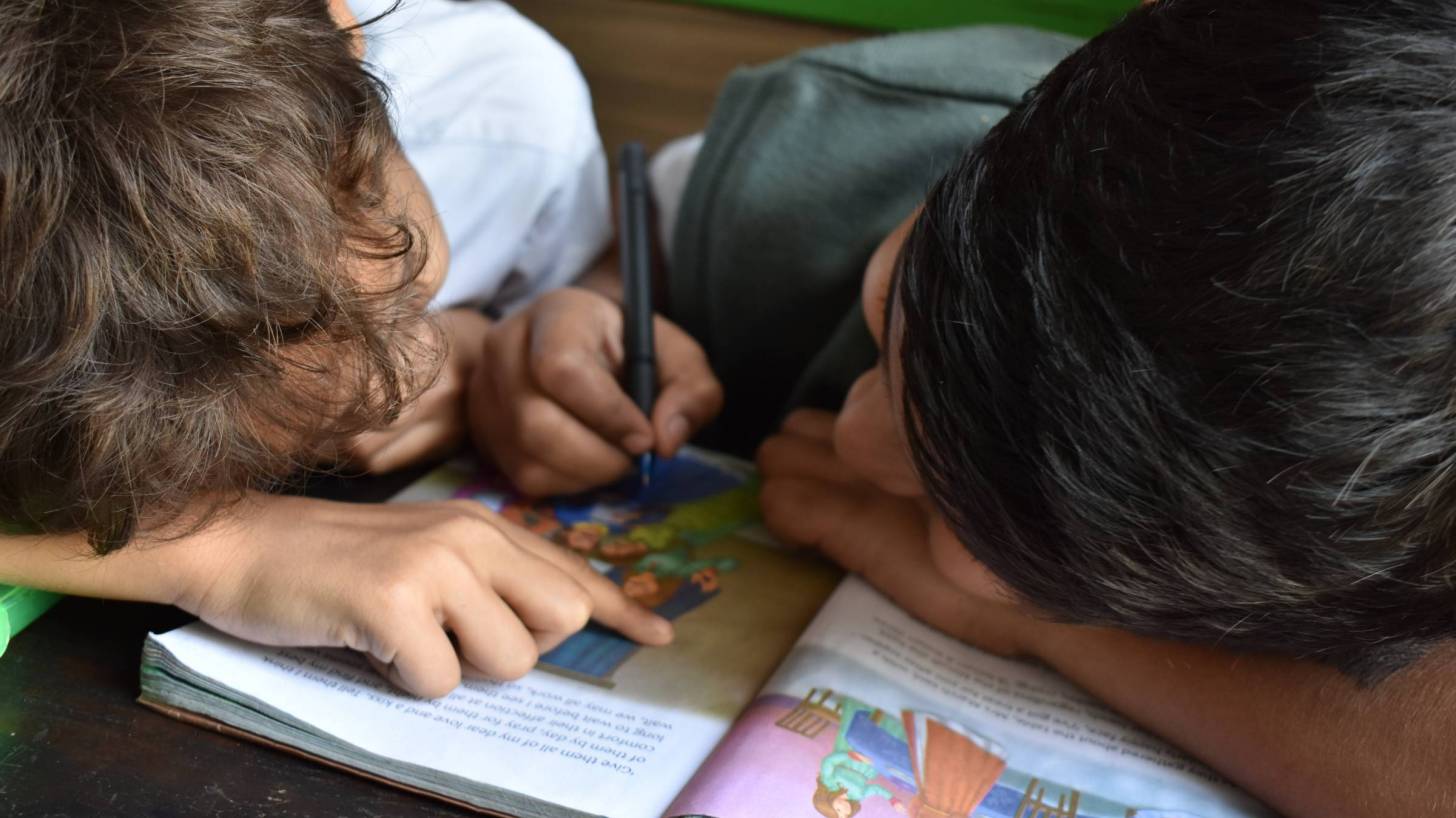
The World Health Organization (WHO) Polio Emergency Committee recommended that the international risk of poliovirus spread remains a Public Health Emergency of International Concern (PHEIC) under the International Health Regulations during a June 23, 2020, meeting.
The Emergency Committee reviewed the data on wild poliovirus (WPV1) and circulating vaccine-derived polioviruses (cVDPV).
The global situation remains of great concern with the increased number of WPV1 cases that started in 2019 continuing in 2020.
This year, there have been 70 WPV1 cases as of June 16, 2020, compared to 57 for the same period in 2019.
The Committee noted that based on results from the sequencing of WPV1, there were recent instances of international spread of viruses from Pakistan to Afghanistan and from Afghanistan to Pakistan.
The ongoing frequency of WPV1 international spread between the two countries and the increased vulnerability in other countries where routine immunization and polio prevention activities have both been adversely affected by the COVID-19 pandemic are major factors that suggest the risk of international spread may be at the highest level since 2014.
And, during 2020, West Africa and Ethiopia have reported experiencing high levels of transmission of circulating vaccine-derived poliovirus type-2 (cVDPV2), and due to the coronavirus pandemic, with many areas that have reported cases recently not having had an immunization response.
The WHO’s Director-General Tedros Adhanom Ghebreyesus, Ph.D., accepted the committee's recommendations on July 3, 2020, to extend the Temporary Recommendations for a further 3-months.
Dr. Tedros’s remarks included: ‘that while there has been amazing progress on wild poliovirus in Africa, there is still much more work to do to end transmission in Pakistan and Afghanistan.
Similarly, the significantly greater than the expected number of cVDPV2 outbreaks are another major challenge.
At the same time, the polio infrastructure that has been developed in Pakistan and Afghanistan has been used to assist with the tracking and tracing as part of the COVID-19 pandemic response.
He also remarked that the novel oral polio vaccine type-2, which will be made available under the Emergency Use Listing procedure (EUL), is expected to be an important new tool to stop the vicious cycle of using monovalent Sabin OPV2 to combat outbreaks, but in turn, seeding new outbreaks of cVDPV2.’
In Pakistan transmission continues to be widespread, as indicated by both acute flaccid paralysis (AFP) surveillance and environmental sampling.
WPV1 transmission continues to be widespread, with southern Khyber Pakhtunkhwa becoming a new WPV1 reservoir and some areas such as Karachi and the Quetta block having uninterrupted transmission.
There has also been an expansion of WPV1 to previously polio-free areas in Sindh and Punjab.
In Afghanistan, the inaccessibility and missed children particularly in the Southern Region have led to a large cohort of susceptible children in this part of Afghanistan.
The risk of a major upsurge of cases is growing, with other parts of the country that have been free of WPV1 for some time now at risk of outbreaks.
The number of provinces reporting WPV1 has increased from three in 2019 to 11 in 2020.
This would again increase the risk of international spread.
While border closures and lockdowns may mitigate the risk in the short term while in force, this would be outweighed in the longer term by falling population immunity through disruption of vaccination and the resumption of normal population movements.
The Committee repeated its strong support for the development and proposed Emergency Use Listing of the novel OPV2 vaccine which should become available mid-2020, and which it is hoped will result in no or very little seeding of further outbreaks.
The Committee recognizes the concerns regarding the lengthy duration of the polio PHEIC but concludes that the current situation is extraordinary, with clear ongoing and increasing risk of international spread and ongoing need for a coordinated international response.
To advise international travelers, the U.S. Centers for Disease Control and Prevention (CDC) issued a Level 2 Travel Alert on April 20, 2020. This Practice Enhanced Precautions Alert confirms there are polio outbreaks in several countries in Africa.
The CDC recommends that before traveling to these countries, adults who completed their routine polio vaccine series as children should receive a single, lifetime adult booster dose of polio vaccine, and administering an inactivated poliovirus vaccine (IPV) booster dose, which has been the only polio vaccine offered in the USA since 2000.
There are various IPV vaccines available in the USA, such as Kinrix and Pediarix.
Vax-Before-Travel publishes polio outbreak news.
Our Trust Standards: Medical Advisory Committee


